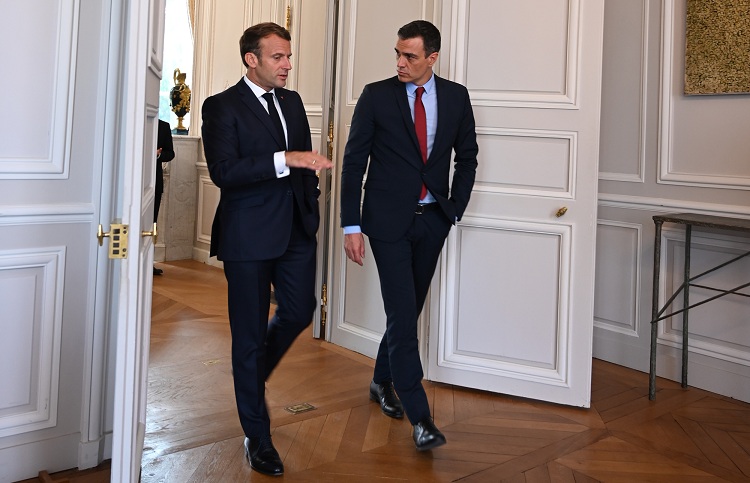Eduardo González
The tripartite meeting between the President of the Government, Pedro Sánchez, the President of France, Emmanuel Macron, and the Portuguese Prime Minister, António Costa, to address the issue of energy interconnections, including the French rejection of the MidCat trans-Pyrenean gas pipeline, will take place today morning in Brussels in the margins of the European Council, according to Moncloa sources informed The Diplomat.
Pedro Sánchez announced last October 7 in Prague, at the end of the informal European Council, that Costa, Macron and himself had committed to meet in Paris on three sides before the next European Council to address the issue of energy interconnections, including the MidCat trans-Pyrenean gas pipeline. Finally, according to the aforementioned sources, the three leaders have opted to meet in Brussels to coincide with their participation in the Council. Sánchez, Costa and Macron will be accompanied by their respective energy ministers.
The meeting has been proposed by Macron, a detail that has been highly valued by the Government, which, according to the same Moncloa sources, has committed to attend the meeting in a constructive spirit and trusts that the meeting will clarify France’s doubts regarding the MidCat project. Spain’s objective is that this pipeline, which would link the Iberian Peninsula with the rest of the EU through the Pyrenees, could transport not only gas, but also green hydrogen.
Sánchez himself declared in Prague that the meeting proposed by Macron “demonstrates the will of the French government to find a solution that responds to its domestic demands” and was convinced that, “one way or another, sooner rather than later, we are going to reach an agreement that matches all the sensitivities and concerns of France.” “I’m not going to say I’m optimistic,” but “I’m convinced that a good agreement can be reached with a friend and ally like the French government,” he added.
To date, Macron has repeatedly expressed his rejection of MidCat on the grounds that electricity interconnections should be prioritized first and that there is already a problem of “overcapacity” in the pipelines connecting Spain and France. In addition, the French president has warned that the project would cross the Pyrenees “through a protected route” and, therefore, would be incoherent with the EU’s climate agenda and went so far as to assure in Prague that “it is rather France that is exporting gas to Spain”. In response to this last statement by Macron, the Spanish Ministry for Ecological Transition and the Demographic Challenge assured that Spain has had a favorable net gas export balance to France in 69% of the 219 days since March 1, one week after the start of the war in Ukraine.
For the time being, Spain and Portugal have the support of Germany. Last Friday, the German Chancellor, Olaf Scholz, received in Berlin the two champions of the “Iberian solution” for energy supply in Europe, Pedro Sánchez and António Costa, with whom he discussed “the importance of accelerating the construction, within the EU, of energy corridors suitable for transporting gas and renewable hydrogen”. On October 5, Pedro Sánchez and Olaf Scholz defended – in the framework of the Spanish-German Summit in A Coruña – the “utmost importance” of the MidCat gas pipeline and the need for it to be operational by 2025.
The Brussels European Council, which will conclude tomorrow, will discuss Ukraine, energy, economic issues and external relations and follows the informal European Council in Prague, where EU leaders also addressed Russia’s war against Ukraine and the impact it is having on Europe’s energy crisis and economy. More specifically, EU leaders will assess in the EU capital the energy price situation and security of supply, including market optimization measures and progress in reducing demand for gas from Russia.







